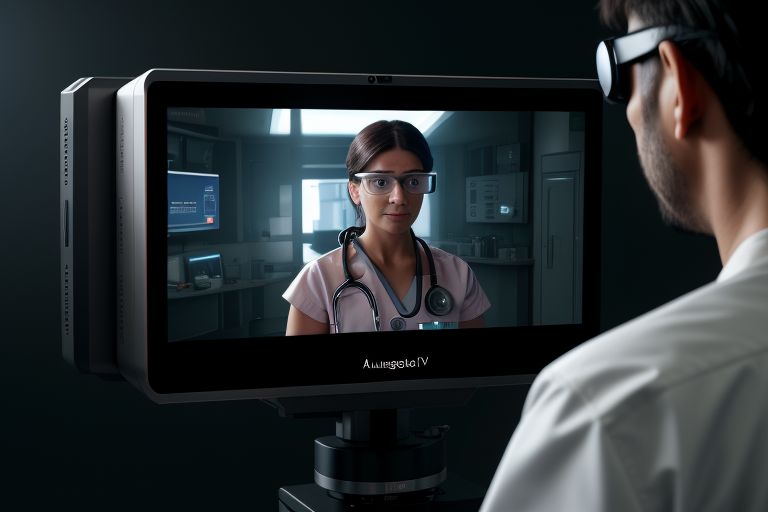In recent years, augmented reality (AR) has emerged as a groundbreaking technology with immense potential to revolutionize various industries. One of the most promising fields where AR is making significant strides is healthcare. From enhancing medical training to improving patient outcomes, AR is reshaping the landscape of healthcare delivery in unprecedented ways.
Understanding Augmented Reality in Healthcare
Augmented reality integrates digital information with the user’s real-time environment, contrasting with virtual reality’s (VR) simulated environments. In healthcare, AR is utilized through wearable devices like smart glasses or mobile applications, leveraging the device’s camera to display AR content.
Applications in Medical Training and Education
AR has transformed medical training by allowing students to visualize complex anatomical structures in 3D directly overlaid onto the human body. This immersive experience enhances understanding and improves retention rates among students.
Positive Impact: Dr. Emily Carter, a professor at Johns Hopkins University, notes, “AR democratizes medical education by providing an interactive platform that bridges theoretical knowledge with practical application.”
Challenges: However, barriers such as the cost of AR devices and specialized training for educators hinder widespread adoption in medical schools.
Precision Surgery and Procedural Guidance
In surgical settings, AR provides surgeons with precise guidance during complex procedures. AR overlays offer critical information like patient vitals and MRI scans directly within their field of vision, improving surgical accuracy and reducing errors.
Positive Impact: Hospitals using AR-assisted procedures reported a 35% decrease in surgical complications, highlighting the technology’s potential to enhance patient safety.
Challenges: Yet, reliance on technology poses risks in cases of technical glitches or network failures during critical surgeries.
Enhancing Patient Care and Rehabilitation
AR transforms patient care by improving patient education and rehabilitation processes.
Patient Education and Remote Consultations
AR enables healthcare providers to explain diagnoses and treatments effectively, enhancing patient understanding and decision-making.
Positive Impact: Dr. Sarah Lopez from Massachusetts General Hospital emphasizes, “AR empowers patients to be active in their healthcare, fostering collaboration with providers.”
Challenges: Privacy concerns over medical data shared via AR platforms remain significant for both providers and patients.
Rehabilitation and Physical Therapy
AR-based applications aid in rehabilitation by creating interactive exercises and simulations, improving patient engagement and adherence to treatment protocols.
Positive Impact: Studies show AR accelerates recovery and boosts patient satisfaction by making exercises more engaging and goal-oriented.
Challenges: Accessibility issues for patients without AR devices or reliable internet limit widespread adoption in rehabilitation.
Future Prospects and Challenges Ahead
The future of AR in healthcare shows promise alongside challenges that must be addressed for broader adoption.
Advancements in AR Technology
Future innovations in AR may include enhanced real-time data visualization, AI-driven diagnostics, and even augmented reality contact lenses for seamless integration into daily medical practices.
Positive Impact: Dr. James Kim of Stanford University predicts, “AR will transform patient care with wearable tech and AI, ushering in a new era of personalized medicine.”
Challenges: Ethical concerns like data privacy, cybersecurity threats, and regulatory challenges require careful consideration as AR integrates into healthcare.
Addressing Barriers to Adoption
To unlock AR’s full potential in healthcare, barriers such as cost, technological complexity, and resistance to change within healthcare systems must be overcome.
Positive Impact: Collaborations between tech firms, healthcare providers, and regulators aim to reduce costs and improve AR device accessibility.
Challenges: Disparities in healthcare access could widen unless efforts ensure equitable distribution and training among healthcare professionals.
In conclusion, Augmented reality is poised to revolutionize healthcare by enhancing education, improving surgical precision, transforming patient care, and driving future innovations. Addressing challenges such as cost, privacy, and accessibility will be crucial in harnessing AR’s full potential to create a more efficient, patient-centered healthcare system.





